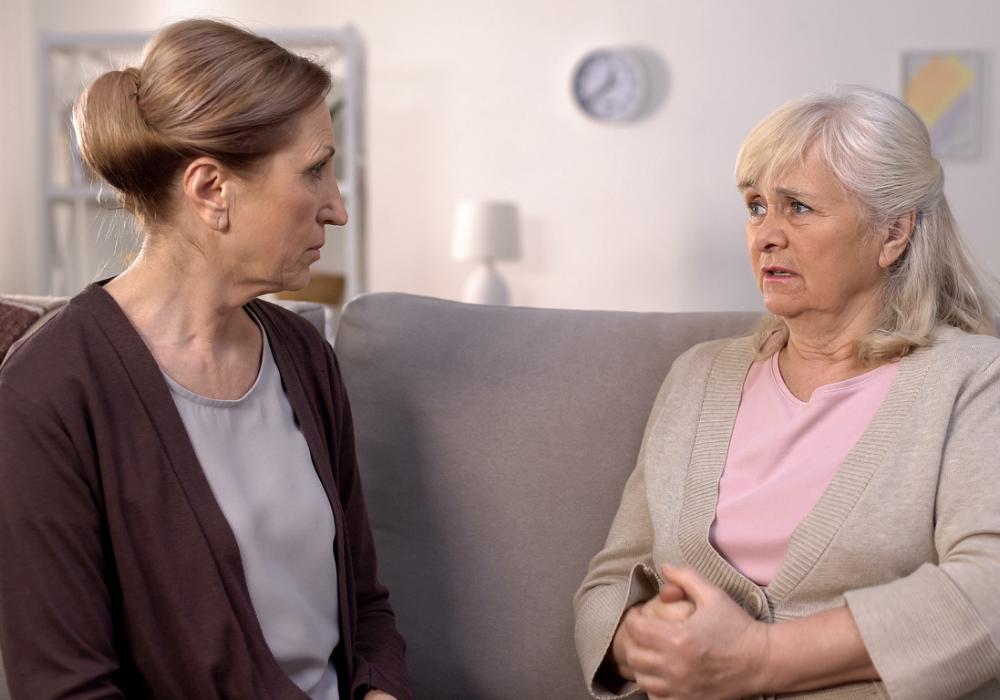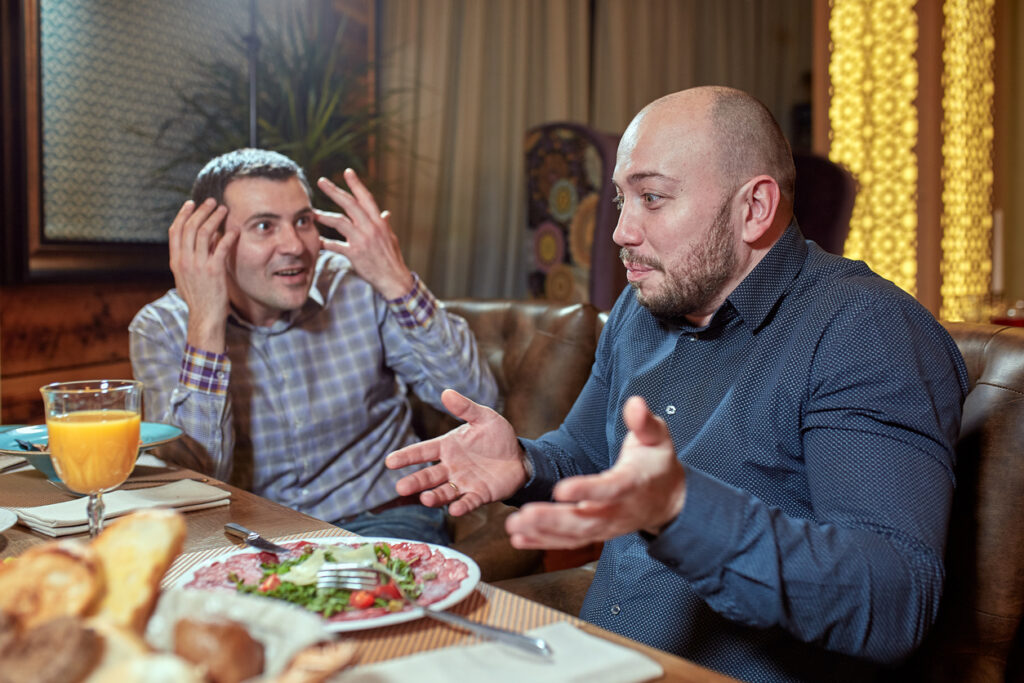Ignoring these warning signs could leave you stuck in a friendship that’s draining your happiness.

Have you ever sat quietly after a meetup with a friend and felt more exhausted than energized? What once brought you comfort and connection might now feel like a burden you’re too afraid to address. It’s easy to dismiss these changes, especially in friendships that have stood the test of time. But holding onto a relationship that’s stopped feeling good can take a silent toll on your emotional well-being.
Here are 13 honest and clear ways to know when it’s time to let go and make room for relationships that truly nourish your life.
1. They Make You Feel Guilty for Having a Life Outside the Friendship

You deserve a full life, one that includes work, family, new interests, and even alone time. But when a friend makes you feel bad for not always being available, it can create an emotional chokehold. If they respond with guilt trips or passive-aggressive comments every time you make plans without them, it’s not just clinginess—it’s control disguised as closeness. Over time, this can make you second-guess your boundaries and even sacrifice your own needs just to appease them.
A healthy friendship supports your growth and independence. You should feel free to explore other relationships and experiences without worrying about emotional fallout from a friend. When someone expects to be your entire social world, it’s a warning sign that the dynamic is out of balance and may be more about their insecurity than mutual care, as reported at PsychCentral.
2. They Drain Your Energy Instead of Lifting You Up

Some people are like a breath of fresh air, while others feel like a thundercloud follows them everywhere. If you consistently leave interactions with a friend feeling emotionally depleted or overwhelmed, that’s worth paying attention to. It’s one thing to be there for someone during a rough patch, but if it’s always heavy and you’re the one doing all the emotional lifting, it’s no longer reciprocal.
You might even begin to feel anxious before seeing them, anticipating a long download of complaints or self-pity without ever being asked how you’re doing. Friendships aren’t supposed to feel like unpaid therapy sessions. If you’re constantly playing the role of emotional caretaker with no relief in sight, it’s time to ask whether this connection is uplifting—or just one-sided— as stated at Verywell Mind.
3. They Don’t Celebrate Your Wins—They Get Jealous Instead

When something great happens, the first people you want to tell should be those who genuinely root for you. But if you hesitate to share your accomplishments because you know they’ll downplay your news or make it about themselves, that’s a problem. A friend’s envy shouldn’t eclipse your joy. Jealousy that shows up as sarcasm, backhanded compliments, or indifference can leave you feeling small, even in your proudest moments.
Real friends cheer you on, even when they’re struggling in their own lives. Their support shouldn’t feel conditional or laced with comparison. If every success story you share seems to trigger a shift in their tone or mood, you’re not dealing with encouragement—you’re navigating quiet resentment, as mentioned at Healthline.
4. You’re the Only One Making an Effort to Stay in Touch

If you’re the one constantly texting first, organizing plans, and reaching out to check in, take a moment to consider how that feels. Being the sole caretaker of a friendship creates resentment over time, even if you’ve never said a word about it. A one-way street isn’t a friendship—it’s an obligation masked as loyalty.
The healthiest relationships are built on mutual effort. If they regularly ignore your messages or cancel plans without rescheduling, it shows a lack of investment. While people do get busy, it doesn’t take much to show they care. A simple response or occasional initiative goes a long way. When none of that is happening, it might be time to ask yourself if you’re the only one who still wants this connection to exist.
5. You Dread Seeing Their Name Pop Up on Your Phone

A good friend’s name on your screen should bring a smile, not a sinking feeling. If your first reaction is stress, anxiety, or annoyance, that’s a signal from your nervous system that something’s off. Maybe you know the conversation will be tense or you’re anticipating emotional labor you just don’t have the bandwidth for anymore.
When a relationship becomes more about emotional management than shared joy, it erodes your peace. Over time, this dread builds into avoidance and emotional withdrawal. That’s not something to ignore. Your gut is telling you the truth long before your mind is ready to admit it. Pay attention to the difference between a relationship you maintain out of love versus one you maintain out of guilt.
6. They Use You as a Dumping Ground for Their Problems

We all need someone to talk to, but if a friend only reaches out when they need to vent or complain—and never returns the favor—it starts to feel like emotional exploitation. You’re not their therapist, and you shouldn’t be made to feel guilty for setting boundaries when their crises drain your emotional reserves.
True friendship includes both vulnerability and presence. If they ghost you when you’re in need, but expect you to drop everything for their problems, that’s not an equal exchange. Eventually, you’ll begin to feel like a tool rather than a person—useful only when they need relief, and forgotten when you do.
7. They Constantly Bring Up the Past Instead of Growing with You

Nostalgia has its place, but if your friend only wants to talk about who you used to be—and ignores who you are now—it can stunt both your growth and the friendship’s potential. Bringing up old stories, inside jokes, and former versions of you is comforting in small doses, but if it’s constant, it may mean they’re avoiding the evolution of your relationship.
Healthy friendships grow with us. If you’ve gone through personal growth, changed careers, or developed new interests, those should be acknowledged and welcomed. But when a friend keeps you frozen in the past, it creates friction with the person you’re becoming. You shouldn’t have to apologize for evolving just because they haven’t kept up.
8. You Feel Judged Instead of Accepted

A good friend lets you breathe. They see your flaws and love you anyway. But if you constantly feel like you’re under scrutiny—whether for your choices, lifestyle, or personality—it chips away at your self-esteem. Friendship isn’t about perfection; it’s about safety and acceptance.
Sometimes the judgment is subtle—a certain look, a change in tone, a loaded “joke.” But your body knows when you’re being judged. If you leave your time together second-guessing your actions or feeling worse about yourself, that’s a clue the friendship has turned toxic. A real friend sees your humanity, not your shortcomings.
9. They Disappear When You Need Them Most

Life gets hard, and real friends show up when it matters most. If someone consistently vanishes during your low points—emotional distress, job loss, family crisis—but expects your full presence during theirs, the relationship is out of balance. Their absence speaks volumes, even if you don’t want to hear it.
Friendship is tested in adversity, not celebration. When you’re in pain or navigating a tough season, you deserve support. If they’re too “busy” or “didn’t know what to say,” ask yourself if you would’ve done the same. If the answer is no, the relationship may be far more lopsided than you realized.
10. You’ve Outgrown Each Other’s Values and Interests

People change—sometimes dramatically—and it’s natural to drift apart. If your friend still enjoys the same routines and conversations while you’ve moved into a different life stage or mindset, the disconnect becomes harder to ignore. It can make once-vibrant conversations feel awkward or empty.
That doesn’t mean either of you are wrong. It just means your paths have diverged. Shared values and interests are the glue of long-term relationships. When they’re no longer there, trying to force a connection feels more like an obligation than enjoyment. It’s okay to acknowledge when the overlap has faded.
11. They’re More Competitive Than Supportive

There’s a difference between light-hearted banter and constant comparison. If your friend always has to “top” your story, outdo your success, or subtly one-up you, it turns every interaction into a competition. That’s not friendship—it’s performance.
Supportive friends lift you up. They don’t view your wins as their losses. When every achievement feels like a trigger for their defensiveness or dismissiveness, you start to hide your joy just to keep the peace. That’s not a dynamic you should settle for. You deserve friends who celebrate you without keeping score.
12. You’ve Started to Feel Like Someone Else When You’re Around Them

Do you find yourself filtering your words, tiptoeing around their moods, or pretending to agree with things just to avoid conflict? That’s not authenticity—it’s survival mode. And the longer you do it, the more you disconnect from your own identity.
You shouldn’t have to shrink to fit someone else’s comfort zone. Real friends want the real you—unfiltered, honest, and human. If you’re constantly editing yourself to stay on their good side, it’s a sign that the relationship isn’t safe. Being loved for who you actually are is the whole point of friendship.
13. You No Longer Feel Happy When You’re Together

At the heart of every friendship should be joy. If spending time with someone leaves you feeling flat, anxious, or relieved only once it’s over, that’s not just a mood—it’s a message. The spark is gone, and pretending it’s still there won’t bring it back.
Friendships aren’t supposed to be heavy all the time. Sure, every relationship goes through phases, but if the overwhelming feeling is dread instead of delight, it’s time to honor that truth. You don’t have to keep investing in something that no longer feeds your soul. Sometimes, the kindest thing you can do—for both of you—is let go.
